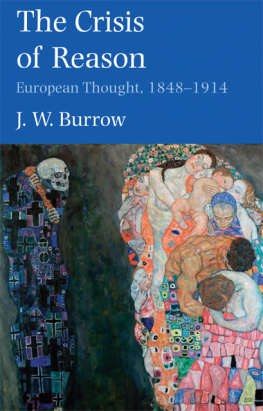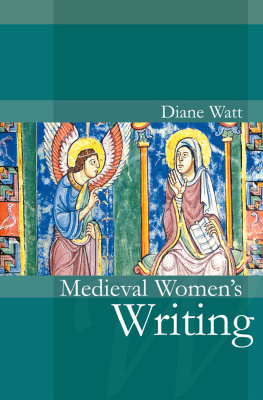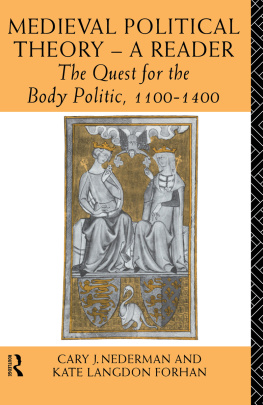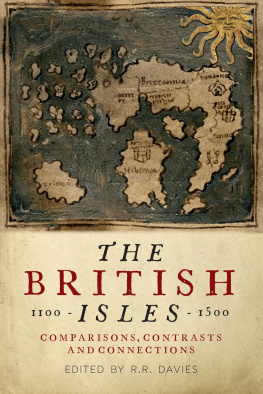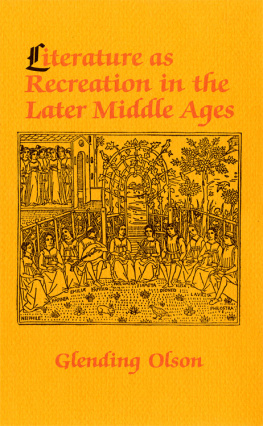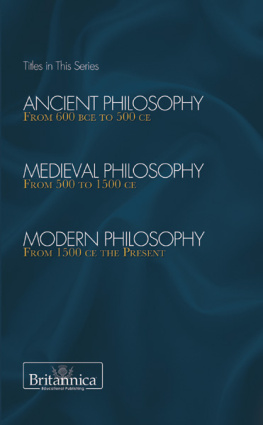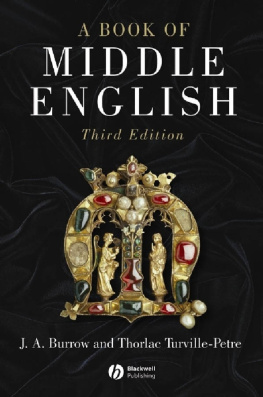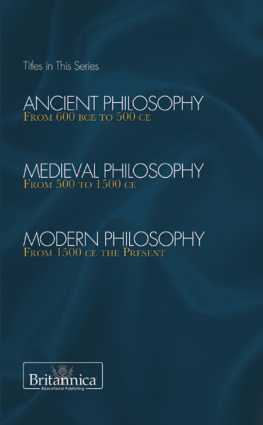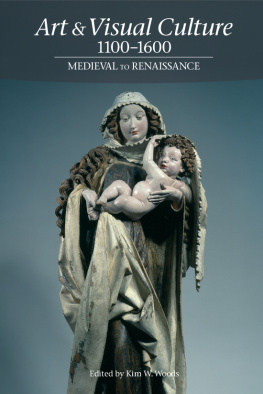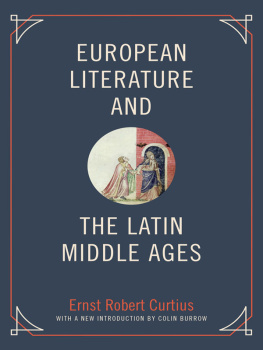Burrow - Medieval writers and their work: Middle English literature, 1100-1500
Here you can read online Burrow - Medieval writers and their work: Middle English literature, 1100-1500 full text of the book (entire story) in english for free. Download pdf and epub, get meaning, cover and reviews about this ebook. City: Oxford, year: 2008, publisher: Oxford University Press USA - OSO, genre: Art. Description of the work, (preface) as well as reviews are available. Best literature library LitArk.com created for fans of good reading and offers a wide selection of genres:
Romance novel
Science fiction
Adventure
Detective
Science
History
Home and family
Prose
Art
Politics
Computer
Non-fiction
Religion
Business
Children
Humor
Choose a favorite category and find really read worthwhile books. Enjoy immersion in the world of imagination, feel the emotions of the characters or learn something new for yourself, make an fascinating discovery.
- Book:Medieval writers and their work: Middle English literature, 1100-1500
- Author:
- Publisher:Oxford University Press USA - OSO
- Genre:
- Year:2008
- City:Oxford
- Rating:3 / 5
- Favourites:Add to favourites
- Your mark:
- 60
- 1
- 2
- 3
- 4
- 5
Medieval writers and their work: Middle English literature, 1100-1500: summary, description and annotation
We offer to read an annotation, description, summary or preface (depends on what the author of the book "Medieval writers and their work: Middle English literature, 1100-1500" wrote himself). If you haven't found the necessary information about the book — write in the comments, we will try to find it.
Burrow: author's other books
Who wrote Medieval writers and their work: Middle English literature, 1100-1500? Find out the surname, the name of the author of the book and a list of all author's works by series.
Medieval writers and their work: Middle English literature, 1100-1500 — read online for free the complete book (whole text) full work
Below is the text of the book, divided by pages. System saving the place of the last page read, allows you to conveniently read the book "Medieval writers and their work: Middle English literature, 1100-1500" online for free, without having to search again every time where you left off. Put a bookmark, and you can go to the page where you finished reading at any time.
Font size:
Interval:
Bookmark:

J. A. Burrow
Middle English Literature 11001500
SECOND EDITION


Great Clarendon Street, Oxford ox2 6 DP
Oxford University Press is a department of the University of Oxford. It furthers the Universitys objective of excellence in research, scholarship, and education by publishing worldwide in
Oxford New York
Auckland Cape Town Dar es Salaam Hong Kong Karachi
Kuala Lumpur Madrid Melbourne Mexico City Nairobi
New Delhi Shanghai Taipei Toronto
With offices in
Argentina Austria Brazil Chile Czech Republic France Greece
Guatemala Hungary Italy Japan Poland Portugal Singapore
South Korea Switzerland Thailand Turkey Ukraine Vietnam
Oxford is a registered trademark of Oxford University Press in the UK and in certain other countries
Published in the United States by Oxford University Press Inc., New York
J. A. Burrow 2008
The moral rights of the author have been asserted Database right Oxford University Press (maker)
First published 1982
All rights reserved. No part of this publication may be reproduced, stored in a retrieval system, or transmitted, in any form or by any means, without the prior permission in writing of Oxford University Press, or as expressly permitted by law, or under terms agreed with the appropriate reprographics rights organization. Enquiries concerning reproduction outside the scope of the above should be sent to the Rights Department, Oxford University Press, at the address above
You must not circulate this book in any other binding or cover and you must impose the same condition on any acquirer
British Library Cataloguing in Publication Data
Data available
Library of Congress Cataloging in Publication Data
Data available
ISBN 978-0-19-953204-9
This book offers neither a history nor a survey of Middle English literature: a survey may be found in The Cambridge History of Medieval English Literature, edited by David Wallace (1999), and Derek Pearsall provides a history of the verse in Old English and Middle English Poetry (1977). The present book is designed as an introduction. At the risk of giving an exaggerated impression of the strangeness of Middle English writings, I have concentrated on some of the chief differences which confront a reader of modern literature when he or she first approaches them: differences in the notion of literature itself ( also attempt to characterize the Middle English period in relation to earlier and later periods of English literature.
Texts are quoted from the editions cited in the Bibliography. Bible quotations are from the Authorized Version. Translations of Dantes Divine Comedy are taken from the version by C. H. Sisson (1980).
I would like to thank Stephen Medcalf, Alastair Minnis, Charles Runacres, John Scattergood, Thorlac Turville-Petre, and many students and colleagues for giving me ideas and advice.
For the present new edition I have reviewed the text throughout and rewritten parts of it, as well as bringing references cited in the notes and bibliography up to date.
The phrase Middle English has an academic and somewhat unidiomatic flavour. It was first coined to designate a period in the history of the English language. Historical philologists in the nineteenth century, most of them German, liked to see in the history of a language three phases: Old (alt-), Middle (mittel-), and New or Modern (neu-). This triadic scheme fitted the history of English quite well. Old English could only be the language of pre-Conquest, Anglo-Saxon England. New English presumably extended back from the present day to the beginning of modern timessay, the first Tudors. In between lay Middle English. This was distinguished from Old English chiefly by a simplified system of inflexion and a vocabulary enriched from French and Scandinavian sources, and from Modern English by inflexions still further simplified and a vocabulary further enriched and diversified, especially from Latin. On the strength of changes such as these, philologists fixed the beginnings of Middle English in the period 11001150 and its end around 14501500.
Philology and literary history being twin disciplines, it is not surprising that literary historians were quick to adopt the concept of Middle English. The three or four hundred years in question soon came to be seen also as a literary period. It seemed natural to consider the works surviving from these centuriesAncrene Wisse and The Owl and the Nightingale, Sir Gawain and the Green Knight and The Cloud of Unknowing, the Canterbury Tales and Morte Darthuras representatives not only of a stage in the English language, but also of a stage in the development of English literature. Yet this usage cannot be accepted without question, even in a book such as this, committed by its title to the concept of Middle English Literature. Literary historians are accustomed to borrow like jackdaws from other disciplines when it comes to defining and naming periods. They use, for instance, the reigns of kings and queens: Jacobean drama, Victorian poetry. The status of such borrowed labels must always be questionable, even when they are borrowed, as in the case of Middle English, from a discipline more closely related to literary studies than is political history.Language is the medium of literature, and the state of the language at any given time can hardly fail to carry literary consequences. However, the particular features which interest philologists and form the basis of their periodizations (inflexions, for instance) are not always fraught with profound literary implications. So there is no necessary reason for the literary historian or critic to pay any attention at all to linguistic periods, any more than to kings reigns.
Yet the philologists concept of Middle English has in fact proved useful for literary purposes; and this utility is not merely a matter of happy accident, as a glance at some of the linguistic changes marking the beginning of the period will suggest. The main changes in vocabulary and inflexion can be seen by comparing two passages from the Peterborough Chroniclea version of the Anglo-Saxon Chronicle which the monks of Peterborough kept until the middle of the twelfth century. The monks entries for the years up to 1121 are written in passable Old English. Thus one of them writes as follows about William the Conqueror, on the occasion of his death in 1087:
Se cyng Willeim e we embe spreca ws swie wis man, and swie rice, and wurfulre and strengere onne nig his foregenga wre. He ws milde am godum mannum e God lufedon, and ofer eall gemett stearc am mannum e wicwdon his willan.
King William, of whom we speak, was a very wise man, and very powerful, more distinguished and more powerful than any of his predecessors were. He was gentle with those good men who loved God, and beyond measure severe with those men who opposed his will.
All the words here are native Anglo-Saxon words; and the inflexions (except in wurfulre and strengere, which have -e for -
Font size:
Interval:
Bookmark:
Similar books «Medieval writers and their work: Middle English literature, 1100-1500»
Look at similar books to Medieval writers and their work: Middle English literature, 1100-1500. We have selected literature similar in name and meaning in the hope of providing readers with more options to find new, interesting, not yet read works.
Discussion, reviews of the book Medieval writers and their work: Middle English literature, 1100-1500 and just readers' own opinions. Leave your comments, write what you think about the work, its meaning or the main characters. Specify what exactly you liked and what you didn't like, and why you think so.


